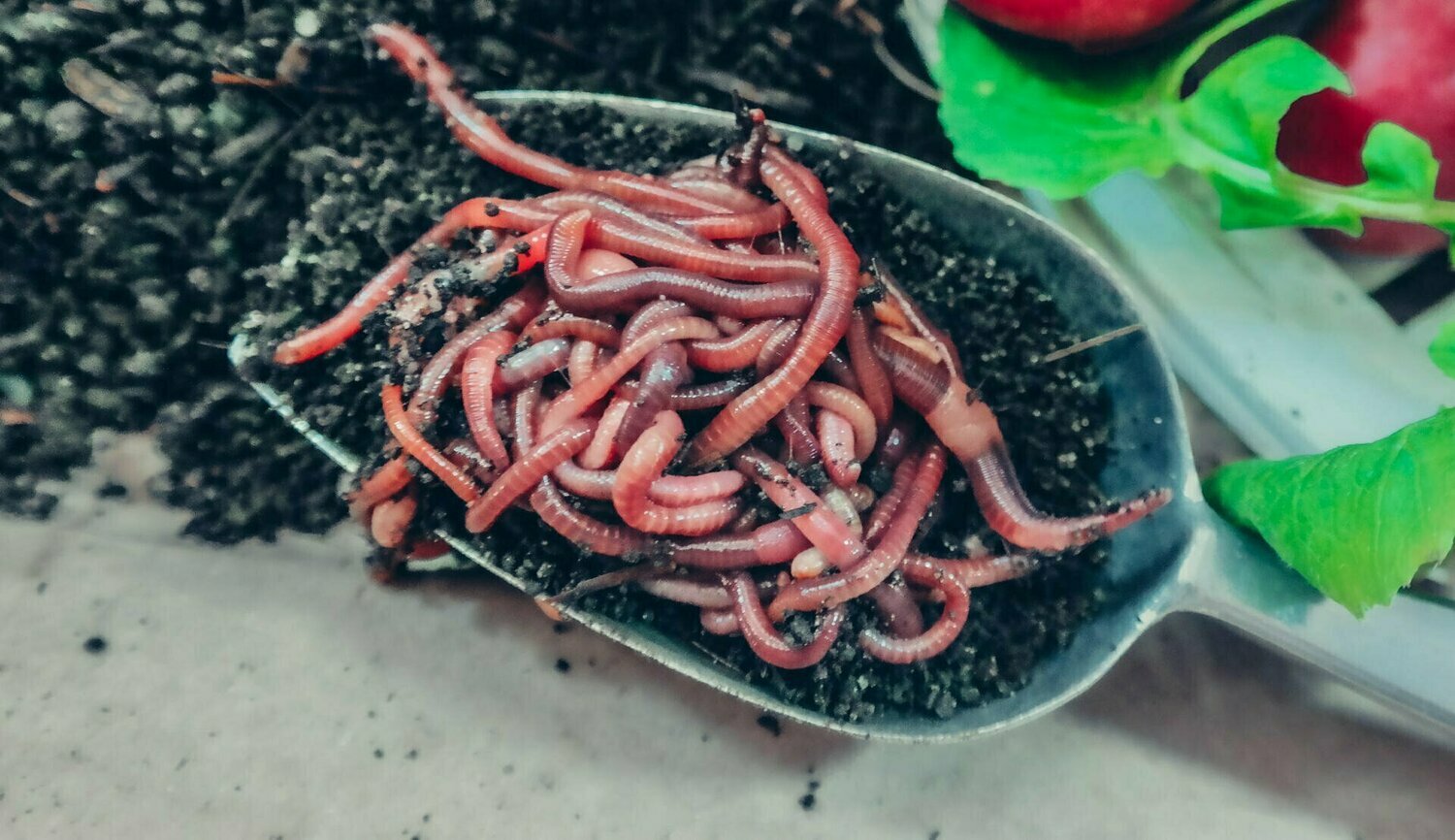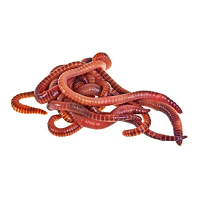Healthy red wigglers: For sustainable composting
Healthy red wigglers: For sustainable composting
Blog Article
Why Red Wigglers Are Vital for Chemical-free Farming
Red wigglers play an essential function in natural farming, mainly with their special ability to disintegrate organic materials and boost dirt health and wellness. Their task not only enriches the soil with vital nutrients but additionally promotes a thriving ecosystem crucial for sustainable agriculture. The physical processes they engage in, such as oygenation and moisture retention, contribute dramatically to enhanced plant returns. However, the degree of their influence on farming methods and dirt biology raises intriguing questions regarding the future of chemical-free farming. What implications might this have for farming methodologies?
Duty of Red Wigglers in Dirt Health

Furthermore, red wigglers boost soil structure by developing channels as they tunnel. These networks boost aeration and water seepage, promoting a much healthier origin setting. Their activity likewise helps in maintaining optimal moisture degrees, which is crucial for healthy plant growth.

Advantages of Worm Spreadings
Worm spreadings, the nutrient-rich waste matter generated by red wigglers, work as an effective modification for natural farming. These spreadings are packed with necessary nutrients such as nitrogen, phosphorus, and potassium, which are crucial for plant growth. Unlike synthetic fertilizers, worm castings release nutrients gradually, providing a stable supply with time and decreasing the threat of nutrient leaching and runoff.
Furthermore, worm castings boost dirt structure and oygenation, advertising healthier root systems. Their high natural issue material enhances dampness retention, making it possible for plants to better endure drought problems. Additionally, worm spreadings consist of useful bacteria that support plant health by subduing virus and improving nutrient uptake.
The application of worm castings can lead to raised crop returns and enhanced quality of produce, making them a very useful resource for natural farmers. Their usage additionally aligns with sustainable farming practices, adding to soil fertility without the negative environmental influences linked with chemical fertilizers. Overall, the unification of worm castings right into farming practices fosters a much more resistant and productive environment, underscoring the value of red wigglers in chemical-free farming systems.

Enhancing Nutrient Biking
(redworms for composting)Vitamins and mineral biking is an essential procedure in chemical-free farming, and the assimilation of red wigglers plays an essential duty in boosting this cycle. These earthworms contribute significantly to the malfunction of raw material, facilitating the makeover of complicated natural materials into simpler, extra available nutrients for plants. As red wigglers take in rotting raw material, they eliminate nutrient-rich castings, which are brimming with beneficial microbes. This microbial activity further aids in the disintegration process, making certain that important nutrients are easily offered for plant uptake.
Furthermore, red wigglers aid to accelerate the mineralization of nutrients, transforming them from inert types right into bioavailable types that plants can absorb. This procedure is crucial for maintaining soil fertility and promoting healthy crop growth. The presence of red wigglers also motivates a varied dirt community, fostering an equilibrium of nutrients that supports numerous plant types.
Improving Soil Structure
The enhancement of soil framework is vital for cultivating a healthy and balanced agricultural ecosystem, and the task of red wigglers dramatically adds to this improvement. These earthworms play an essential function in freshening the dirt and developing a network of channels that promote water seepage and root penetration. As they burrow via the dirt, red wigglers separate compressed layers, allowing for better oxygen exchange and promoting microbial activity.
In addition, the natural issue created from their waste, referred to as vermicast, enhances soil gathering. This procedure develops secure clumps of dirt bits, boosting soil porosity and minimizing erosion (red wigglers). The presence of red wigglers also encourages the growth of helpful fungal go to this website networks, which are important for nutrient uptake by plants
Supporting Lasting Practices
Incorporating red wigglers right into natural farming practices not only improves soil wellness but likewise advertises sustainable farming methods. These earthworms play a vital role in nutrition cycling, changing natural waste into useful garden compost that enriches the soil. By making use of red wigglers, farmers can properly minimize dependence on artificial fertilizers, consequently reducing chemical drainage and its harmful impacts on communities.
Additionally, the consolidation of red wigglers motivates the practice of reusing organic materials, such as kitchen scraps and ranch waste. This waste reduction strategy not just decreases disposal costs yet additionally cultivates a closed-loop system where nutrients are continually returned to the soil (red wigglers). Such methods are crucial in mitigating climate adjustment, as they improve carbon sequestration and minimize greenhouse gas discharges
In addition, red wigglers improve water retention in the dirt, which is important in times of drought. Their burrowing tasks create channels that allow water to permeate much deeper into the ground, therefore promoting reliable water use. Ultimately, incorporating red wigglers into organic farming not just sustains biodiversity yet also lines up with the principles of lasting farming, providing an alternative method to food manufacturing.
Final Thought
In verdict, red wigglers play an essential role in chemical-free farming by substantially enhancing soil wellness and fertility. Their capability to break down raw material and create nutrient-rich castings promotes a thriving microbial community, which is crucial for nutrient cycling. Furthermore, the tunneling activities of these worms enhance soil structure and aeration, assisting in much better water infiltration and root growth. Thus, the integration of red wigglers into agricultural practices is vital for promoting sustainability and boosting total dirt top quality.
Report this page